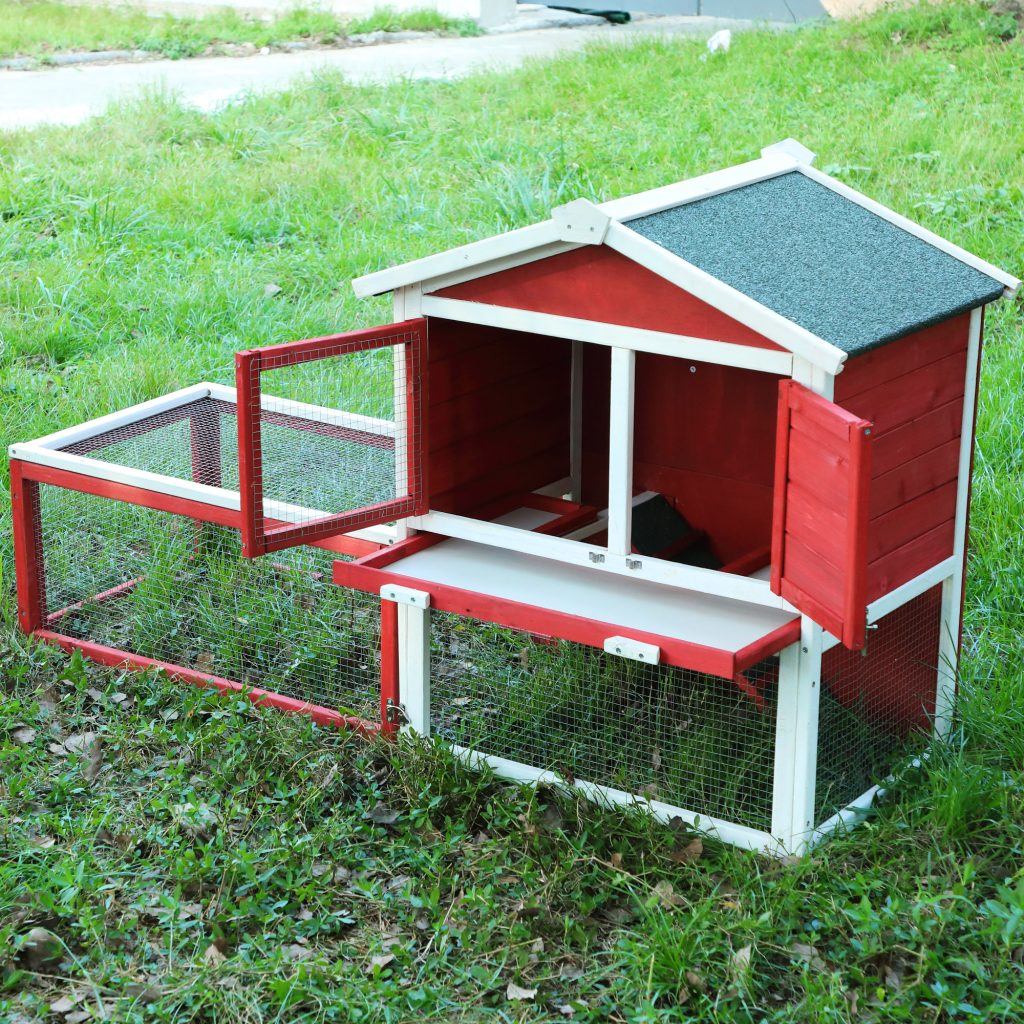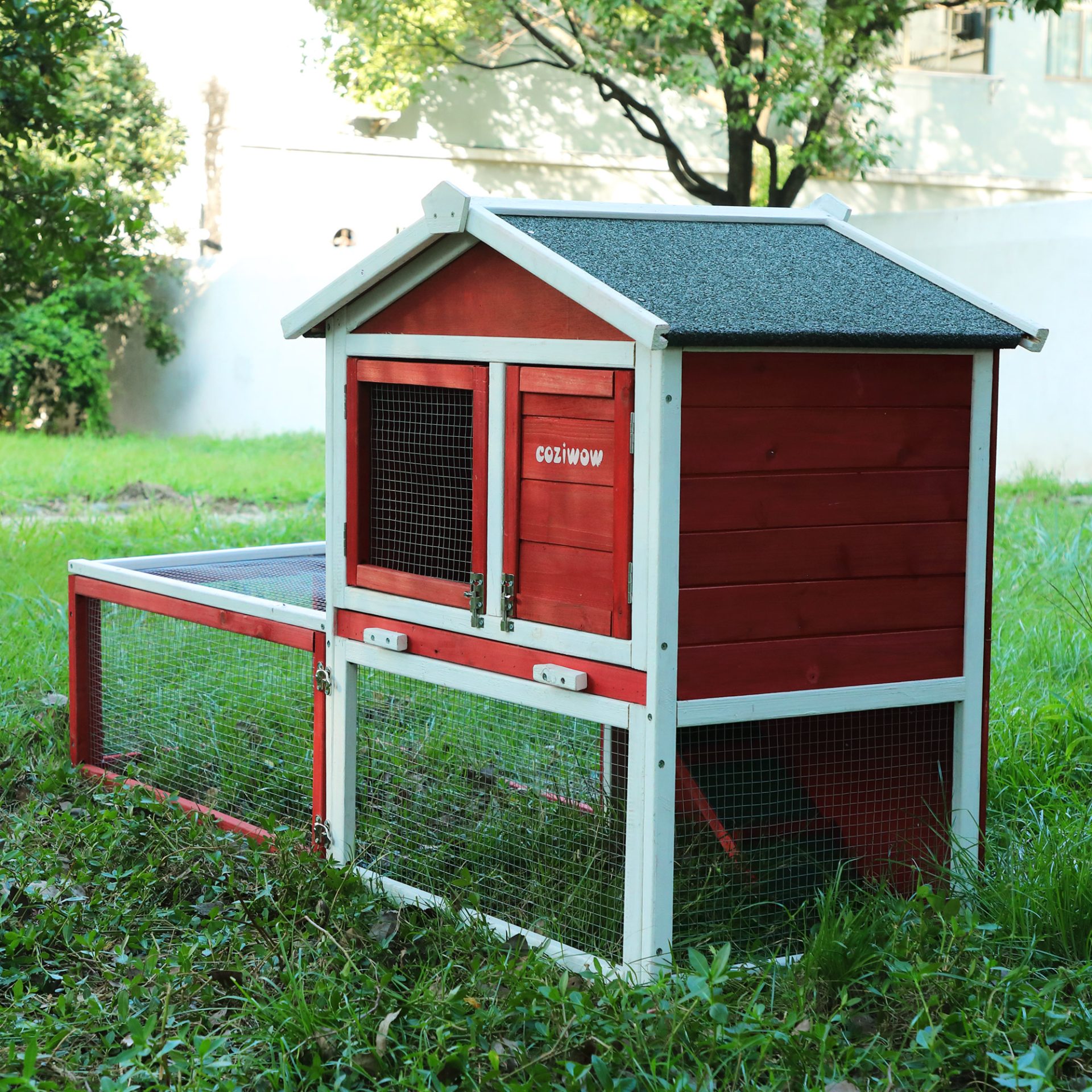It is vital for the health of baby bunnies to find the correct rabbit bedding. A rabbit under the age of six months will still have its newborn fur. This implies they must be kept warm.
Use warm bedding that maintains a consistent body temperature until your rabbit reaches adulthood. The temperature must never fall below 101 degrees Fahrenheit. Because a newborn rabbit will be sleeping more, they must be comfy.
Absorption is also important for young rabbits. Baby bunnies will urinate on command until they learn to control their bladders. Litter training a young rabbit is difficult because of their short attention spans.
This means you’ll go through a lot of bedding before the rabbit matures. When selecting bedding, keep this in mind. Otherwise, it might be a costly six months.
What Is The Best Adult Bunny Bedding ?
A healthy adult rabbit requires fewer special requirements. They’ll set the thermostat to a pleasant temperature and make themselves at home.
This is not to say that you should rush into a decision. Your bunny may be drawn to materials that are harmful to them.
When selecting bedding for an adult rabbit, consider their personality first. Some rabbits will have more specific requirements than others.

What is the Best Senior Bunny Bedding?
A senior rabbit will most likely spend much of his time in bed. Their desire for adventure and exercise will wane as they get older. This means that your comfort should come first.
Arthritis affects older rabbits as well. This means that their bedding should be as soft as possible. Unfortunately, arthritis can develop in rabbits as young as six months old. The Rabbit Welfare Association expands on this common issue.
A rabbit with limited movement can live a full and happy life. Just don’t expect them to be as accommodating as they once were. Soft bedding is required.
A senior rabbit’s immune system may be compromised. Sickness can have far-reaching implications. This entails avoiding any potential allergens in their bedding and keeping them warm.
What Do Rabbits Like to Sleep On?
Rabbits are creatures who seek comfort. If your rabbit sleeps on hard, cold surfaces, don’t be deceived.
When a rabbit is overheating, they may seek relief by resting on your kitchen floor. Overall, they prefer a nice, comfy bed. Your bunny will like the following bedding options:
- Shredded Paper. Standard, plain paper fed through a shredder is best. This way, your bunny will not eat potentially toxic ink.
- Cellulose. All little animals enjoy this low-cost, easily available substance.
- Aspen. Shreds of aspen are soft and absorbent. This bedding is ideal for incontinent bunnies that may have a bedtime accident.
- Hay. Most bunnies will sleep on hay. Be careful as they may confuse their bedding with litter.
- Rabbit Litter. You might put specific rabbit litter in your bunny’s bed. This may perplex them. Use a different litter in your bunny’s litter pan.
- Pellets. You might get your rabbit bedding pellets. These are, however, pricey and should be used cautiously. Combine them with some of the choices listed above.
- An Old Towel. You could fold up an old towel if you don’t want to spend money on bedding. Simply make sure your rabbit does not chew and choke on the cloth. Check out this list of things rabbits shouldn’t eat.

What Should Never Be Used as Rabbit bedding?
One thing bunnies enjoy is sleeping on. A different, more crucial concern is what rabbits should sleep on.
Rabbits are motivated by survival instincts, although they occasionally make poor decisions. Some rabbit-friendly items are hazardous. Never use the following materials as rabbit bedding:
- Cat Litter. Cat litter is smooth and inviting. However, if consumed, it can be lethal. Furthermore, cat litter is dusty. This dust is harmful to rabbit sinuses.
- Straw. Hay is good, but straw causes irritation in many bunnies. It can also be used to colour and stain their fur.
- Sawdust. Because sawdust is so soft, small animals enjoy sleeping on it. Unfortunately, it also irritates the eyes and nose of rabbits. Although rabbits adore lying on sawdust, it is advisable to avoid it.
- Cardboard. Bunnies enjoy chewing on cardboard. However, it is difficult to swallow. A rabbit will consume cardboard if it is used as bedding.
- Pine and Cedar Wood Shavings. While Aspen is quite safe, pine and cedar are not. These substances badly harm a rabbit’s liver and cause breathing problems.
- Generic Wood Shavings. There is no way of knowing what is inside bedding labeled as Wood Shavings. This can have major health consequences.
- Newspaper. Rabbits enjoy eating paper. Most publications now utilize soy-based ink that is edible. However, some low-cost inks are hazardous to rabbits. It is safer to skip newspaper entirely.
Just because a rabbit enjoys sleeping on a material does not make it safe. When preparing rabbit bedding, always err on the side of caution.

